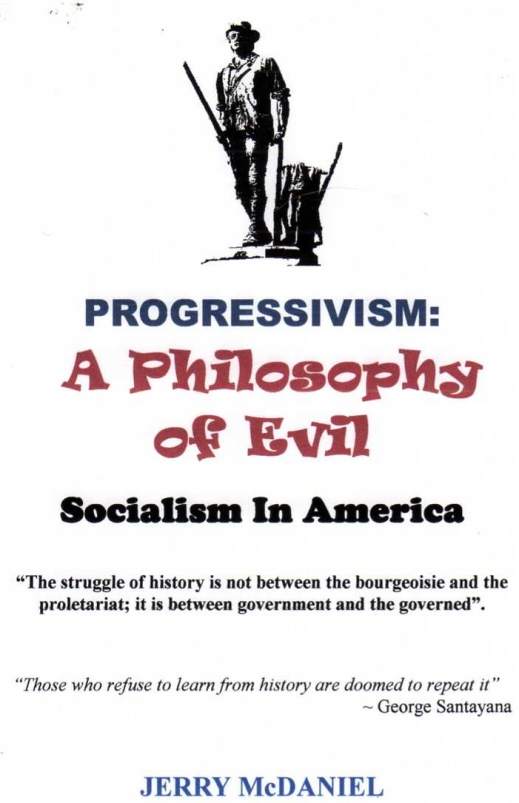 By default, the Supreme Court is the final arbiter of the meaning of the Constitution. Its edicts become the law of the land until they are reversed by a later court or overturned by a constitutional amendment. They must be obeyed, or else we cease to be a nation of laws and become one of anarchy.
By default, the Supreme Court is the final arbiter of the meaning of the Constitution. Its edicts become the law of the land until they are reversed by a later court or overturned by a constitutional amendment. They must be obeyed, or else we cease to be a nation of laws and become one of anarchy.
We should bear in mind however, that the opinions of the court are just that—opinions. In cases of special importance to the welfare of the nation, Justices are often in strong disagreement. In modern times the court is often split 5-4 on major decisions and in a democracy, the will of the majority always prevails, even when it is wrong.
History has shown that not all majority opinions are in the best interest of the country. Justices are subject to the same frailties as their fellow citizens. No matter how hard they may try, influences from their social, political, or moral orientation often creep into their understanding of the Constitution and its application to the facts. Donning the black robes of office does not automatically bestow on them super-human wisdom.
While the decisions of the Supreme Court become the law of the land, they are not the “supreme” law of the land. The Constitution reserves that honor for itself. However, the Constitution has no way of defending itself against those bent on undermining its authority. Congresses and Presidents have always attempted to “stack” the court with Justices who share their worldview. This is extremely difficult to do, however, because of the infrequency of retirement or death.
Roosevelt attempted to influence the Court against opposing his “New Deal” legislation by threatening to appoint additional Justices more in sync with his policies. His proposal was to add an extra Justice for every sitting Justice over the age of seventy. At the time that would have brought the number of Justices to sixteen. It is doubtful if Congress would have gone along with his plan, nevertheless, afterwards the court that had previously ruled most of his New Deal legislation unconstitutional, suddenly changed direction and began to see them as constitutional.
While every public official at the local, state and national levels of government takes an oath to defend the Constitution against all enemies, foreign and domestic, in practice few of them do. The task of defending the Constitution, in the final analysis, falls to the people. This is difficult to do since federal judges are appointed for life terms “during good behavior”. (Article III.1.2)
One of the two remedies in the Constitution for errant Judges who violate it is impeachment. That is one of the reasons why the power of impeachment was given Congress rather than the Court. Hamilton made this clear in Federalist 81.
“….the inference is greatly fortified by the consideration of the important constitutional check which the power of instituting impeachments in one part of the legislative body, and of determining upon them in the other, would give to that body upon the members of the judicial department. …There can never be danger that the judges, by a series of deliberate usurpations on the authority of the legislature, would hazard the united resentment of the body entrusted with it, while this body was possessed of the means of punishing their presumption by degrading them from their stations….it affords, at the same time, a cogent argument for constituting the Senate a court for the trail of impeachments.”
This particular passage is referring to the possibility of the Supreme Court encroaching upon the authority of Congress. When the Court nullifies a law passed by Congress and signed by the President that is within the bounds of the Constitution they are clearly encroaching on legislative powers. When the Court “finds” a hidden meaning in the language of the Constitution to justify the creation of new law (legislating from the bench) they are both violating the Constitution and encroaching on the power of the legislature as well as the power of the people.
The prospect of Congress using the power of impeachment, however, is practically non-existent, especially when so many in Congress display contempt for the Constitution on a daily basis. Aside from a massive number of citizens lobbying Congress for impeachment in particularly egregious cases—which isn’t likely to happen either—the only other constitutional remedy is an amendment to the Constitution.
The best place for the public to defend the Constitution is at the legislative level. It is up to us to monitor proposed legislation and petition our representatives to get unconstitutional laws killed before they are passed. Those who still insist on passing such laws should be voted out of office at the earliest opportunity. There is also some hope for the effectiveness of public outcry on the Court. The liberal Justices most likely to disregard the Constitution have, in the past, shown a definite awareness of public opinion and a desire to appease it.
The only two weapons the public possesses for the defending of the Constitution are the power of the vote and the power of petition. These are most effective when arrayed against the Legislative and the Executive Branches.








Supreme Court vs. Constitution
We should bear in mind however, that the opinions of the court are just that—opinions. In cases of special importance to the welfare of the nation, Justices are often in strong disagreement. In modern times the court is often split 5-4 on major decisions and in a democracy, the will of the majority always prevails, even when it is wrong.
History has shown that not all majority opinions are in the best interest of the country. Justices are subject to the same frailties as their fellow citizens. No matter how hard they may try, influences from their social, political, or moral orientation often creep into their understanding of the Constitution and its application to the facts. Donning the black robes of office does not automatically bestow on them super-human wisdom.
While the decisions of the Supreme Court become the law of the land, they are not the “supreme” law of the land. The Constitution reserves that honor for itself. However, the Constitution has no way of defending itself against those bent on undermining its authority. Congresses and Presidents have always attempted to “stack” the court with Justices who share their worldview. This is extremely difficult to do, however, because of the infrequency of retirement or death.
Roosevelt attempted to influence the Court against opposing his “New Deal” legislation by threatening to appoint additional Justices more in sync with his policies. His proposal was to add an extra Justice for every sitting Justice over the age of seventy. At the time that would have brought the number of Justices to sixteen. It is doubtful if Congress would have gone along with his plan, nevertheless, afterwards the court that had previously ruled most of his New Deal legislation unconstitutional, suddenly changed direction and began to see them as constitutional.
While every public official at the local, state and national levels of government takes an oath to defend the Constitution against all enemies, foreign and domestic, in practice few of them do. The task of defending the Constitution, in the final analysis, falls to the people. This is difficult to do since federal judges are appointed for life terms “during good behavior”. (Article III.1.2)
One of the two remedies in the Constitution for errant Judges who violate it is impeachment. That is one of the reasons why the power of impeachment was given Congress rather than the Court. Hamilton made this clear in Federalist 81.
This particular passage is referring to the possibility of the Supreme Court encroaching upon the authority of Congress. When the Court nullifies a law passed by Congress and signed by the President that is within the bounds of the Constitution they are clearly encroaching on legislative powers. When the Court “finds” a hidden meaning in the language of the Constitution to justify the creation of new law (legislating from the bench) they are both violating the Constitution and encroaching on the power of the legislature as well as the power of the people.
The prospect of Congress using the power of impeachment, however, is practically non-existent, especially when so many in Congress display contempt for the Constitution on a daily basis. Aside from a massive number of citizens lobbying Congress for impeachment in particularly egregious cases—which isn’t likely to happen either—the only other constitutional remedy is an amendment to the Constitution.
The best place for the public to defend the Constitution is at the legislative level. It is up to us to monitor proposed legislation and petition our representatives to get unconstitutional laws killed before they are passed. Those who still insist on passing such laws should be voted out of office at the earliest opportunity. There is also some hope for the effectiveness of public outcry on the Court. The liberal Justices most likely to disregard the Constitution have, in the past, shown a definite awareness of public opinion and a desire to appease it.
The only two weapons the public possesses for the defending of the Constitution are the power of the vote and the power of petition. These are most effective when arrayed against the Legislative and the Executive Branches.
Share this:
Comments Off on Supreme Court vs. Constitution
Posted in Commentary on Government Powers, constitution, Politics
Tagged constitution, constitutional amendment, impeachment, Politics, rule of law, supreme court